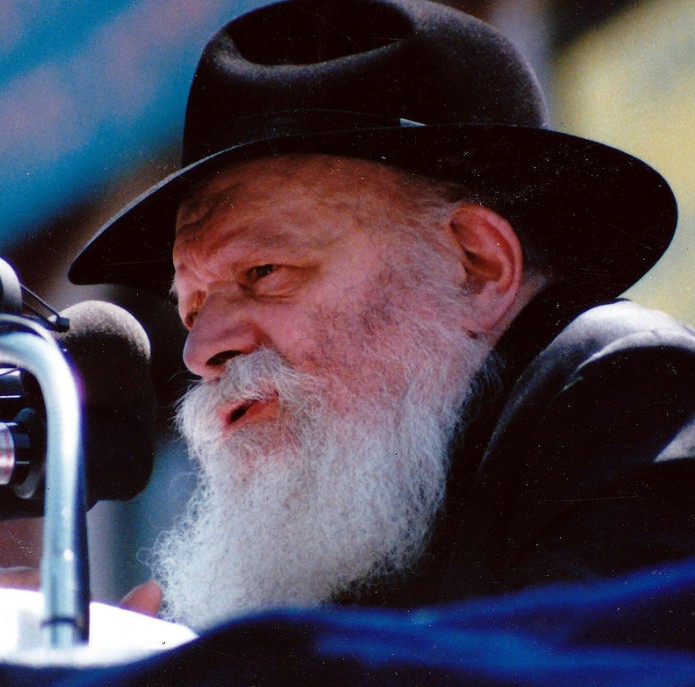New Book on the Lubavitcher Rebbe Reveals: State Leaders Relied on His Advice for Decades
The head of Military Intelligence corresponded with him using codes during the Yom Kippur War. Yaakov Peri met with him immediately after being appointed head of the Shin Bet. Benjamin Netanyahu received guidance on how to represent Israel at the UN. 'At the Crucial Moment', a new book by Shalom Yerushalmi, Yossi Elituv, and Aryeh Erlich, describes the depth of the political and security dialogue between the Lubavitcher Rebbe and Israeli leaders.

A book about a rabbi doesn't often make it to Israel's bestseller list, but that's exactly what happened with 'At the Crucial Moment – The Lubavitcher Rebbe and the Political-Security Dialogue with Israel's Decision-Makers'. Remarkably, the book is authored by three writers: veteran political commentator and 'Makor Rishon' figure Shalom Yerushalmi, along with Yossi Elituv and Aryeh Erlich, two journalists from the ultra-Orthodox weekly 'Mishpacha' who are part of the Chabad Hasidic movement.
"We began formulating the idea for the book four years ago," says Aryeh Erlich, one of the Chabad journalists involved in writing the book. "We reached out to people, gathered materials, but as we progressed with the writing, Yossi and I thought it would be wise to also involve a veteran political commentator. For two reasons: first, the book doesn't just provide the Chabad perspective. In every story we tell, half deals with events that occurred in Israel, in politics and the military. Second, we wanted it to be a book for all of Israel, appealing to as wide an audience as possible."
Why did you specifically choose Shalom Yerushalmi?
"Shalom has been a commentator for forty years, he is very in tune with the Israeli experience. He also has a reputation, which definitely contributed to how the book was received by the public. When we approached Shalom with the idea, we weren't sure what he would think about writing a book about an ultra-Orthodox spiritual leader, but he was captivated from the start. We had a very fruitful collaboration. When we got too enthusiastic – Shalom knew how to restrain us. And vice versa. We worked together in really good harmony for a year."
The book was published about a month ago by Kinneret Zmora Bitan, Israel's largest publishing house. "Everyone there loved the idea of the book from the start," testifies Erlich.
In the world of Chabad Hasidism, of course, the book was received with great enthusiasm. This reaction did not surprise Erlich and his colleagues, but they were surprised by the strong response from the political world. "Last week we sat for an hour with President Rivlin, who was endlessly interested and announced that he intends to read every word in the book. We met with Prime Minister Netanyahu, who also gave an extensive interview for the book and told us how the Rebbe guided him to represent Israel at the UN. We heard responses from across the political spectrum. The book expresses very strong opinions about what is called in Chabad 'the completeness of the land', and this naturally didn't produce only positive reactions. For example, Dan Margalit published a column in 'Israel Hayom' criticizing the Lubavitcher Rebbe's proposal during the Yom Kippur War to conquer Damascus from Syria."
Why, indeed, did the Rebbe suggest conquering Damascus?
"We heard this story from Yosef Ciechanover, a senior figure in the security establishment over the years," explains Erlich. "He told us that on the second day of the war, he received a phone call from New York – the Rebbe asked him to convey to Moshe Dayan his recommendation to conquer Damascus. He waited until Dayan returned from the battlefield, then told him: 'Throw me out of the room if you want, but I have a mission to complete,' and then he told him what the Rebbe had said. To his surprise, Dayan did not dismiss the offer outright. He pondered it, but eventually asked Ciechanover to tell the Rebbe that there were two problems with the proposal: Firstly, Israel didn't have enough soldiers for such an attack, and secondly, such a conquest would force Israel to feed three million Syrians. Incidentally, in government record discussions from that period, you can see that they indeed debated the possibility of conquering Damascus.
"In any case, Ciechanover recounted that in hindsight, he understood that the Lubavitcher Rebbe meant a short, tactical conquest to pressure Syria, which would lead to its withdrawal from the battle, thus leaving Israel to focus solely on the war with Egypt."
 The Lubavitcher Rebbe
The Lubavitcher RebbeWere there stories uncovered during the investigation that surprised even you?
"There were many special discoveries during the research. We really tried to reach people who were decision-makers in Israel at the time. In cases where people have passed away, like Rabin and Shamir, we talked to their close associates and office staff. We conducted lengthy interviews with Elyakim Rubinstein, for example, who was Shamir's Cabinet Secretary. But one of the most incredible interviews was with Yaakov Peri, a former head of the Shin Bet and now a member of the 'Yesh Atid' party. He told us that in 1991, shortly after being appointed head of the Shin Bet, he flew to the US to meet with his American counterparts. At that time, there was a complete blackout on the Shin Bet – Israeli citizens didn't even know the first letter of the head's name, nor did they know about changes at the top. But when Peri landed in New York, two Chabad Hasidim approached him and said: 'Congratulations on your appointment as head of the Shin Bet, the Rebbe wants to meet you.'
Wondering what else the Rebbe knew about him, Yaakov Peri went to meet with him, a meeting that lasted 25 minutes, of which 15 minutes were dedicated to the Rebbe's overview of the threats posed by radical Islam. "He predicted the attack on the Twin Towers," Peri told the book's authors. "Indeed, if I didn't know that this was a man who dedicates most of his time to Torah study, I would have thought it was someone who spends most of his time reading intelligence reports." He concluded the meeting: "I came to him thinking that the religious world was narrow-minded. When I left, I realized how narrow my world was in comparison to the world of the Lubavitcher Rebbe."
Another surprising interview, Erlich describes, happened very unexpectedly – during a condolence visit.
"Yosef Ciechanover is a serial interview decliner. When we approached him with the request to interview for the book, he refused, saying he doesn't interview at all. But in Tishrei of this year, Elyakim Rubinstein's daughter passed away after a serious illness, and I felt compelled to come and offer condolences – Rubinstein sent me corrections to his interview literally in her last days. I took Shalom with me and we went to comfort together.
"Yosef Ciechanover was exactly in Rubinstein's house. Elyakim Rubinstein introduced us and told him we were writing a book about the Lubavitcher Rebbe. He listened and said: 'Let me tell you some stories about the Rebbe.' We turned on the recorder, and he spoke for about half an hour. When he finished, we exchanged phone numbers and agreed to arrange a meeting. But when I called him the next day, he already said: 'I don't know what came over me to speak to you. You can use what I've already said, but I won't be interviewed...'"
Despite it being a book that has already conquered the bestseller lists, Erlich emphasizes that this is not just a successful journalistic project: "For us, writing the book was a mission. This book shows how a spiritual leader immersed in Torah knew everything that was going on. As Shalom Yerushalmi said: It is astounding what drew leaders to him – because they had no material benefit from their connection with the Rebbe. He didn't interfere in politics. So why did the head of Military Intelligence correspond with him during the Yom Kippur War, Sharon consulted with him in his days as a general, and many statesmen sought his advice? The conclusion is that the Rebbe served as a spiritual support for them, perhaps the only support they found outside the country's borders."
The book is expected to be translated into English, says Erlich, and from there its impact could go beyond the Israeli political arena. In fact, even the Hebrew version is doing just that.
"David Feder, Trump's new ambassador, has already read the book," says Erlich. "He says he is memorizing the texts from there..."
Learn more about the Lubavitcher Rebbe's life, activities, and influence, click here.

